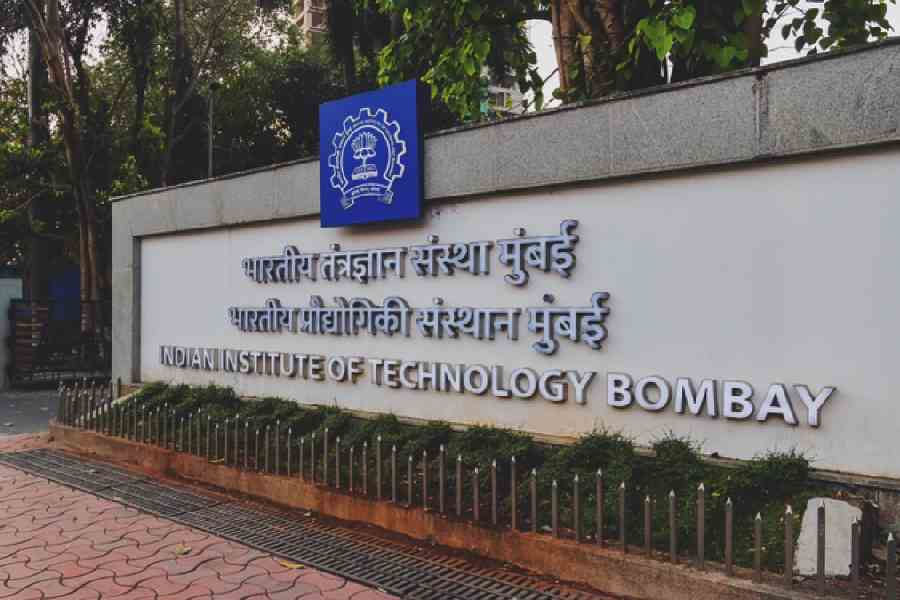The Indian Institute of Technology (IIT), Bombay has retained its top position in India in the QS World University Rankings-Asia and India has surpassed China in the number of ranked universities.
According to the rankings announced on Wednesday, India is now the "most represented higher education system", with 148 featured universities, 37 more than last year. It is followed by Mainland China with 133 and Japan with 96. Myanmar, Cambodia and Nepal featured in the rankings for the first time.
Like last year, IISc Bangalore, Delhi University and five Indian Institutes of Technology -- Bombay, Delhi, Madras, Kharagpur, Kanpur -- have secured positions in the elite top 100 institutes in Asia.
"The increasing visibility of Indian universities in the QS rankings reflects the dynamic expansion of India's higher education landscape. While the significant growth in the number of Indian institutions and their research contributions marks a noteworthy development in the region's educational profile, it also illuminates the path ahead for India to further elevate its standing in the global academic community," said Ben Sowter, Senior Vice President at QS.
While India falls below the regional average in academic reputation and employer reputation, it has achieved the second-best regional results in the papers per faculty metric among the higher education systems with more than 10 universities ranked.
"India achieves its best average score for the staff with PhD indicator, signalling strong research output and a highly qualified faculty body. This performance shows the potential for Indian institutions to leverage their academic rigor and research capabilities to further enhance their global standing,” a statement by the QS said.
"India's performance in the international research network indicator, with a score of 15.4, falls slightly below the regional average of 18.8. This is indicative of a broader pattern evident across all internationalization indicators, where India appears to be striving to balance two ambitious goals: catering to the educational needs of its vast domestic student population and enhancing its appeal to international students. Achieving proficiency in both domains simultaneously presents a significant challenge, particularly at a pace that matches global trends,” it added.
According to QS, India's outbound student mobility marks a significant milestone, exceeding China's for the first time in 15 years with a notable increase in students pursuing education in the US, while concurrently, the country works to enhance its appeal to international students.
Seven Indian universities have secured positions in the top 100 in Asia. Furthermore, Indian statistical institutes have made a remarkable debut, securing the 220th position in the QS Asia rankings. IIT Bombay remained the leading institution amongst the Indian Universities in QS Asia Universities Ranking 2024 while Chandigarh University has climbed to the top spot (1st) among India's private universities.
The transformation of India's higher education system, currently the world's third largest, has been significantly influenced by the implementation of the National Education Policy (NEP-2020) by the present government. This historic decision has catalysed groundbreaking changes, marking a crucial milestone in the country's education sector after a hiatus of 34 years. The reforms introduced through NEP-2020 have played a pivotal role in elevating the standards of education in India, propelling the nation's education ecosystem onto an innovative and progressive path.
CU clinches top spot among private universities Continuing its success streak, Chandigarh University (CU) has clinched its top spot among the private universities in India, in the QS Asia University rankings 2024 – while soaring to 149th spot this year compared to 185th spot secured in the previous edition of the ranking (2023).
The University is at the 11th spot among the public and private universities of the country. Besides this, the university has been ranked in the top 1.1% of all universities in Asia. CU is also ahead of nine IITs and five NITs and has surpassed many international universities in the QS World Ranking, including the universities from China, Japan, and South Korea and other nations.
Chandigarh University stands proudly among India's top 15 universities on six parameters – academic reputation, employee reputation, international student ratio, international faculty ratio, inbound student exchange and outbound student exchange. CU actively promotes cultural exchange through outbound and inbound exchange programs, enriching students' experiences and shaping future leaders.
Speaking about the performance of Indian universities in the QS Asia Rankings 2024, Chandigarh University Chancellor Satnam Singh Sandhu said, "Indian Universities have performed exceptionally well in the QS Asia Rankings 2024, which is a matter of pride for the Nation. A total of 148 Indian Universities have featured in the rankings this year in comparison to 111 Universities ranked in 2023 rankings, showcasing an increase of 33% in just one year. Chancellor Chandigarh University attributed the remarkable performance of Indian Universities to the ground breaking reforms undertaken by Prime Minister Shri Narendra Mod during the last 9 years.
He said, "When PM Modi came into power in 2014, there were only 16 Indian universities that held ranks in the QS Asia University Rankings. However, today under the visionary leadership of PM Modi, India has recorded the highest tally of 148 Universities in the Top Asian Universities, surpassing China's number of 133. This incredible increase in the number of Indian universities entering the QS Asia Rankings in just a span of 9 years is a historical achievement. It underscores the nation's commitment to academic excellence and highlights its growing influence in higher education global."
Satnam Singh Sandhu further added, "Since PM Modi launched and implemented the New Education Policy (NEP-2020), it marked India's journey towards becoming a Vishwa Guru. Since then, there has been an exemplary improvement in education standards that matches global criterion, increase in the number of international students, and growth and achievements in research and innovation in the country, which has led to Indian universities getting their due recognition in the global rankings."
Except for the headline, this story has not been edited by The Telegraph Online staff and has been published from a syndicated feed.











